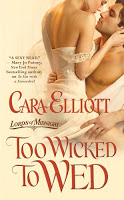Today we have a Book Binge favorite author, Joanna Chambers, with us. Her latest release, Unforgivable, is available now from Samhain Publishing.
___________
The Challenge of Plausibility
As some of you may know, as well as being a romance author, I am a longtime romance reader with a great love of the genre that I used to blog about under my old online moniker of Tumperkin.
I love traditional romance tropes and I love to see them developed in a new ways, and given a fresh spin. I suppose that’s what I’ve tried to do with my writing.
In my debut novel, The Lady’s Secret, I tackled the tricky challenge of the cross-dressing heroine, a trope that’s often used and just as often criticised for lack of plausibility. I wanted to write a convincing cross-dressing heroine and quite a few readers were kind enough to say it worked for them.
In my new novel, Unforgivable, I set out to tackle another tricky trope, and in doing so, inadvertently set myself an even harder challenge. I wanted to write a wife-in-disguise story. I’ve always really liked the husband-who-doesn’t-recognise-his-own-wife scene. The deliciousness of it. The secret knowledge you get to have as the reader.
The wife-in-disguise is another romance component that often gets criticised for plausibility. And plausibility matters, you know? I know a lot of people out there like to think that we romance readers will swallow any old guff in the name of romance, but it’s not true. The higher the plausibility, the easier to suspend disbelief, the more carried away you can be, the more real and true and emotional the story. Does the writer make you believe? Does she make you feel? I think that’s the test for me. I want to feel and believe.
So, in my quest to make Unforgivable plausible, I put my poor heroine through hell. She starts the novel frail, having recently suffered a serious illness:
“I look awful,” Rose said flatly.
The girl in the looking glass was gaunt, her cheeks hollow. She still carried the red, angry marks of her recent illness on her face and body. She was a stranger, and Rose hated looking at her.
“You look fine,” Lottie said briskly, fastening the buttons at the back of Rose’s gown. “And in a few months, you will look lovely. Your hair will grow, and my cook will fatten you up again, cara.”
Rose eyed her tragically shorn hair, all cut off in the midst of raging fever. Lottie’s hairdresser had come yesterday afternoon and had done his best to style her short locks into something resembling a fashionable cap of curls, but she still looked like an early Christian martyr with her sad, shadowed eyes. Like Joan of Arc about to go to the stake.
Rose is persuaded into an arranged marriage with Gil, one that gets off on a bad footing and results in her being left at a remote estate for five long years. When she confronts Gil five years later, he doesn’t recognise her. But you know what? Funnily enough, that didn’t end up being the real challenge.
The real challenge became bringing the hero and heroine back together after that horrible history. And that led me into thoughts of forgiveness and what it means to be (actually be) sorry. And it made methink too about readers’ personal lenses and how those affect how a story is received (for example,many readers find infidelity a hot-button issue. It’s not for me, but for my part, I can’t warm to casual-killer-heroes even though they don’t bother lots of readers in the least).
At the end of it, when I’d finished the story, I knew that all I could do was put it in readers’ hands and let them decide what they thought. Hope I’d made them feel and believe.
But then, I suppose, that’s what every writer does, isn’t it?
Do you have a hot button issue or characteristic that you just can’t get past? Leave a comment for a chance to win a copy of Unforgivable.
Please note: you must include a valid email address with your comment to be eligible. Contest ends: Feb. 7, 2013 @ 11:59 pm.
This book is available from Samhain Publishing. You can buy it here or here in e-format.















